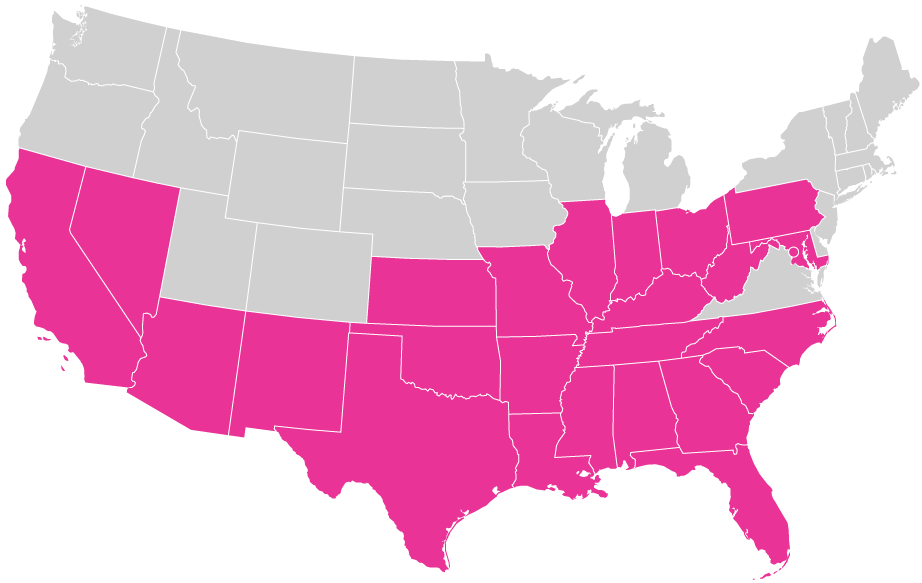EPA Proposes Banning Toxic Food Pesticide Over Drinking Water Concerns
Acephate has been linked to low IQ, attention deficit disorders, and autism
Contact
Today, the Environmental Protection Agency (EPA) proposed a ban on acephate, a widely used organophosphate pesticide found in celery, tomatoes, lettuce, and various other crops, due to acute poisoning risks from drinking water contamination.
Organophosphates, a class of nerve agent chemicals extensively used in wheat, various vegetables, citrus fruits, and berries, have been the subject of scrutiny due to their link to adverse health effects such as reduced IQ, attention deficit disorders, and autism spectrum disorders, as indicated by peer-reviewed studies. The EPA is now reevaluating its health risk studies on each organophosphate to decide whether to uphold safeguards for children and farmworkers. Acephate is used in at least 25 states.

Acephate is used in at least 25 states: Alabama, Arizona, Arkansas, California, Florida, Georgia, Illinois, Indiana, Kansas, Kentucky, Louisiana, Maryland, Mississippi, Missouri, Nevada, New Mexico, North Carolina, Ohio, Oklahoma, Pennsylvania, South Carolina, Tennessee, Texas, Virginia, and West Virginia. Data is not available for Alaska, D.C., Hawaiʻi, and U.S. Territories. Data represents the most recent year available from USGS. (More information.) See detailed maps of acephate usage by state and county.
“We applaud the EPA’s decision to ban acephate from our fruits and vegetables,” said Patti Goldman, Earthjustice attorney. “It took far too long, but EPA is finally poised to protect consumers and the workers who grow our food from this dangerous pesticide. It should quickly extend the proposed ban to all the organophosphates, which have been correlated with learning disabilities in children.”
The EPA’s Office of Pesticide Programs delayed taking action to protect people from acephate to test organophosphates’ health risks using “New Approach Methodologies” (NAMs). But these methodologies are incapable of fully capturing whether organophosphates cause learning disabilities or behavioral disorders. Despite the use of NAMs, the EPA deemed acephate unsafe in drinking water and for workers, after contemplating allowing ten times more acephate in food or water than current limits and weaker safeguards. The European Union banned acephate in food more than 20 years ago.
The agency will open a 60-day public comment period on the proposed acephate ban, with new proposals and risk assessments for several other organophosphates expected later this year.
This ban proposal comes three years after Earthjustice, along with a coalition of 11 health, civil rights, farmworker, and learning disability groups, filed a petition urging the EPA to prohibit all organophosphates. This action followed the EPA’s 2021 ban on chlorpyrifos, the most studied organophosphate, citing safety concerns for children. However, the chlorpyrifos ban is back before the EPA due to a lawsuit filed by a chemical company and trade grower organizations.
Earthjustice represents Farmworker Association of Florida, Farmworker Justice, Learning Disabilities Association of America, United Farm Workers, Alianza Nacional de Campesinas, Natural Resources Defense Council, Pesticide Action Network North America, California Rural Legal Assistance Foundation, GreenLatinos, Pineros Y Campesinos Unidos del Noroeste, UFW Foundation, League of United Latin American Citizens and the Labor Council for Latin American Advancement.
See maps on organophosphate use in the United States.
Quotes from our clients:
“We applaud that the EPA is banning the dangerous organophosphate acephate as it will protect consumers and especially protect farm worker communities. However, the decision was made based on analyzing trace amounts that get into the water tables and did not consider the much bigger exposures that farm workers face. The EPA must ban all organophosphates. By allowing extensive use of neurotoxic pesticides linked to serious health issues, the EPA is failing to fulfill its duty. We demand that the EPA prioritize the health and well-being of farmworkers, their children and their communities,” said Teresa Romero, President of United Farm Workers.
“Cancellation of acephate is urgently needed. The CHAMACOS study conducted in the Salinas area found higher rates of attention deficit and autism among the children of mothers who lived in areas of higher acephate use,” said Anne Katten, Director, Pesticide + Worker Safety Project at California Rural Legal Assistance Foundation.
“We applaud the EPA for banning organophosphate acephate which has been linked to neurodevelopmental conditions such as low-IQ and attention deficit disorder. We urge the EPA to continue moving in the right direction and strengthen additional protections to safeguard against exposure of all toxic pesticides. Farmworkers are on the frontlines of pesticide exposure and prioritizing their health and well-being should be a priority for all,” said Ron Estrada, chief executive officer of Farmworker Justice.
“Scientific studies overwhelmingly show that prenatal and early childhood exposures to even low levels of acetate disrupt children’s brain development and can result in learning disabilities, attention and behavior issues, lower cognitive abilities and autism”, said Tracy Gregoire, Healthy Children Project Director with the Learning Disabilities Association of America. “We thank the EPA for the proposal to ban acetate and ask them to stand firmly on this proposed ban and use the best science to determine safety, not new approach methods which cannot access neurological harm. We must ban acetate to protect children’s brain health and our frontline farmer workers.”

Additional Resources
About Earthjustice
Earthjustice is the premier nonprofit environmental law organization. We wield the power of law and the strength of partnership to protect people's health, to preserve magnificent places and wildlife, to advance clean energy, and to combat climate change. We are here because the earth needs a good lawyer.